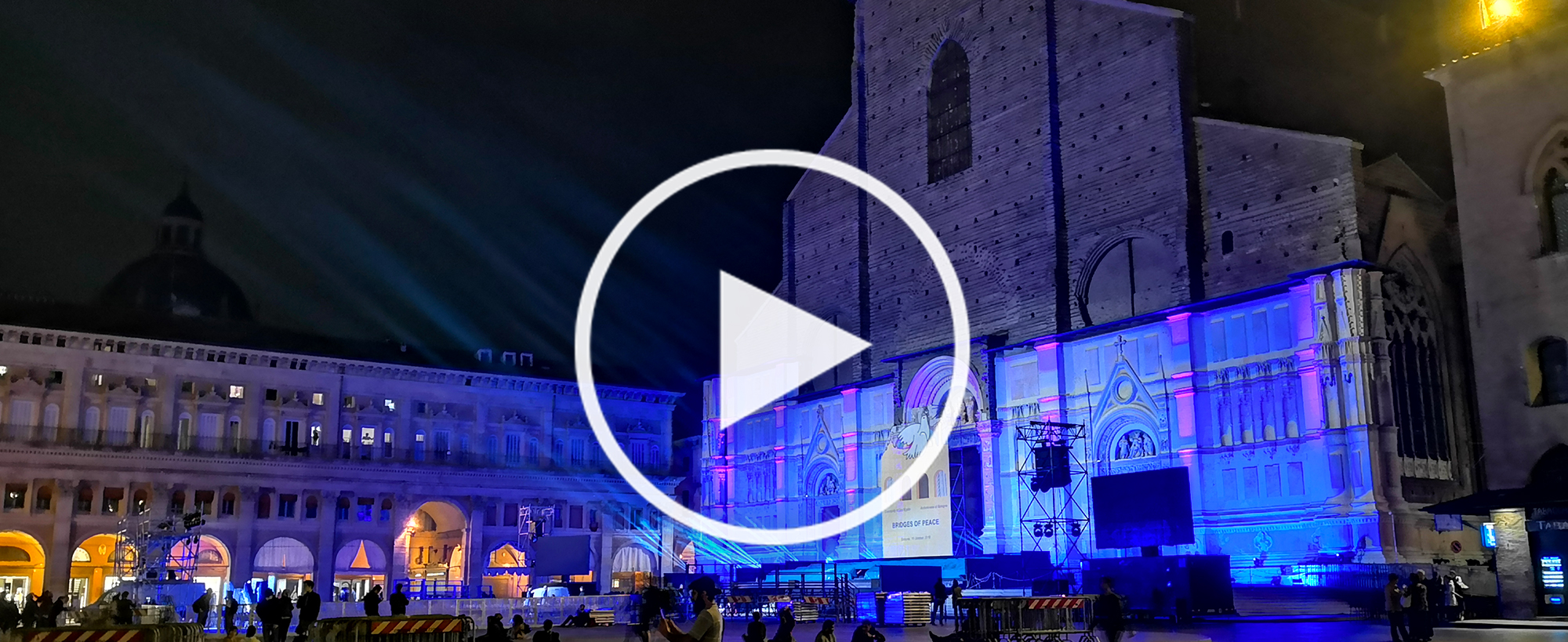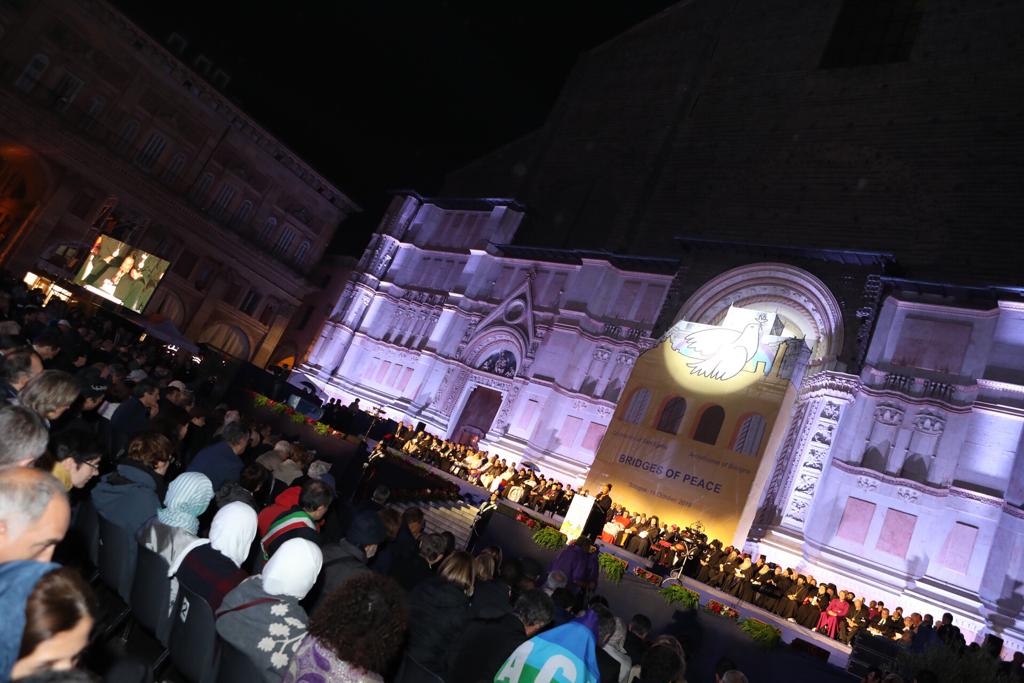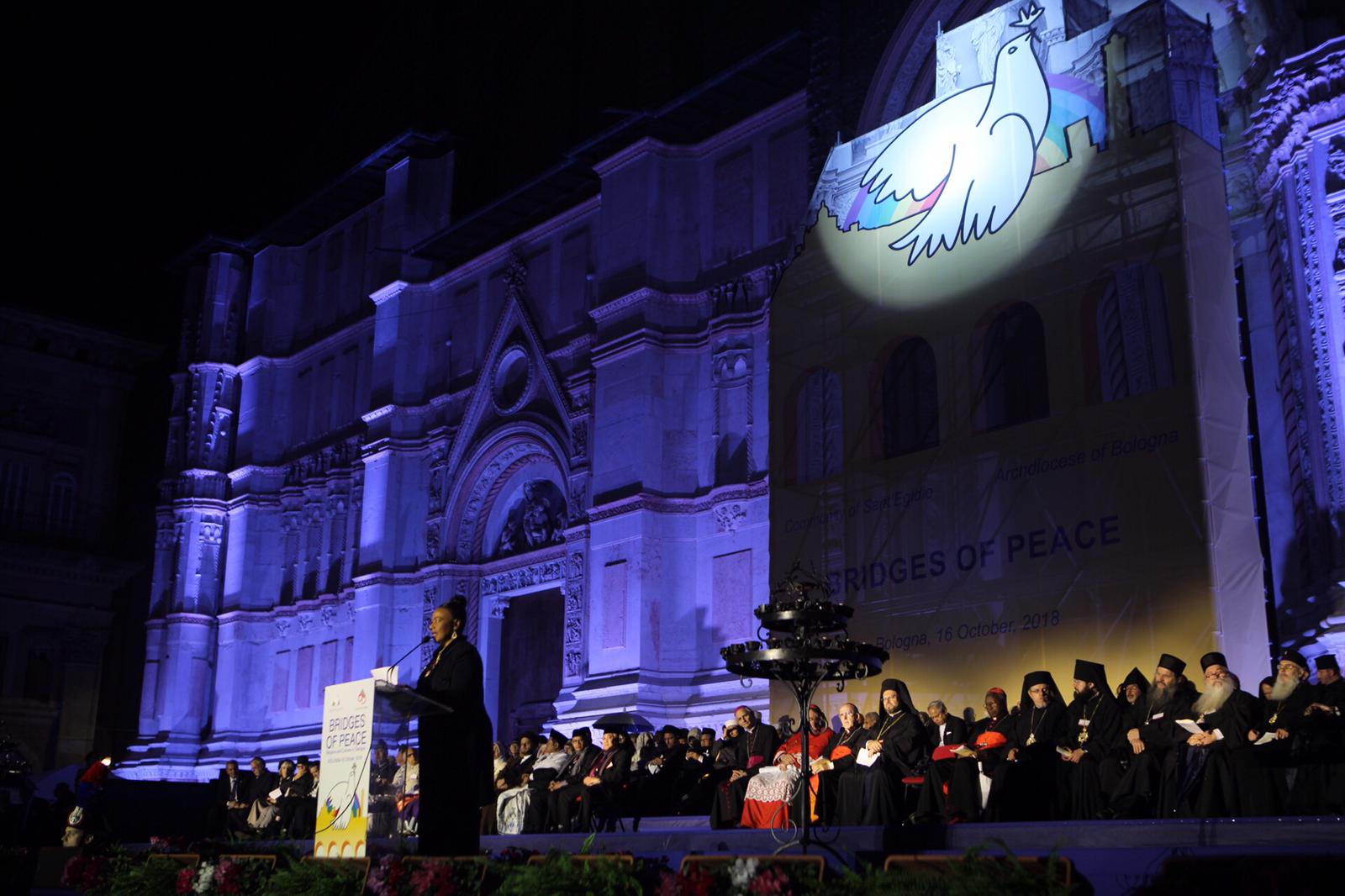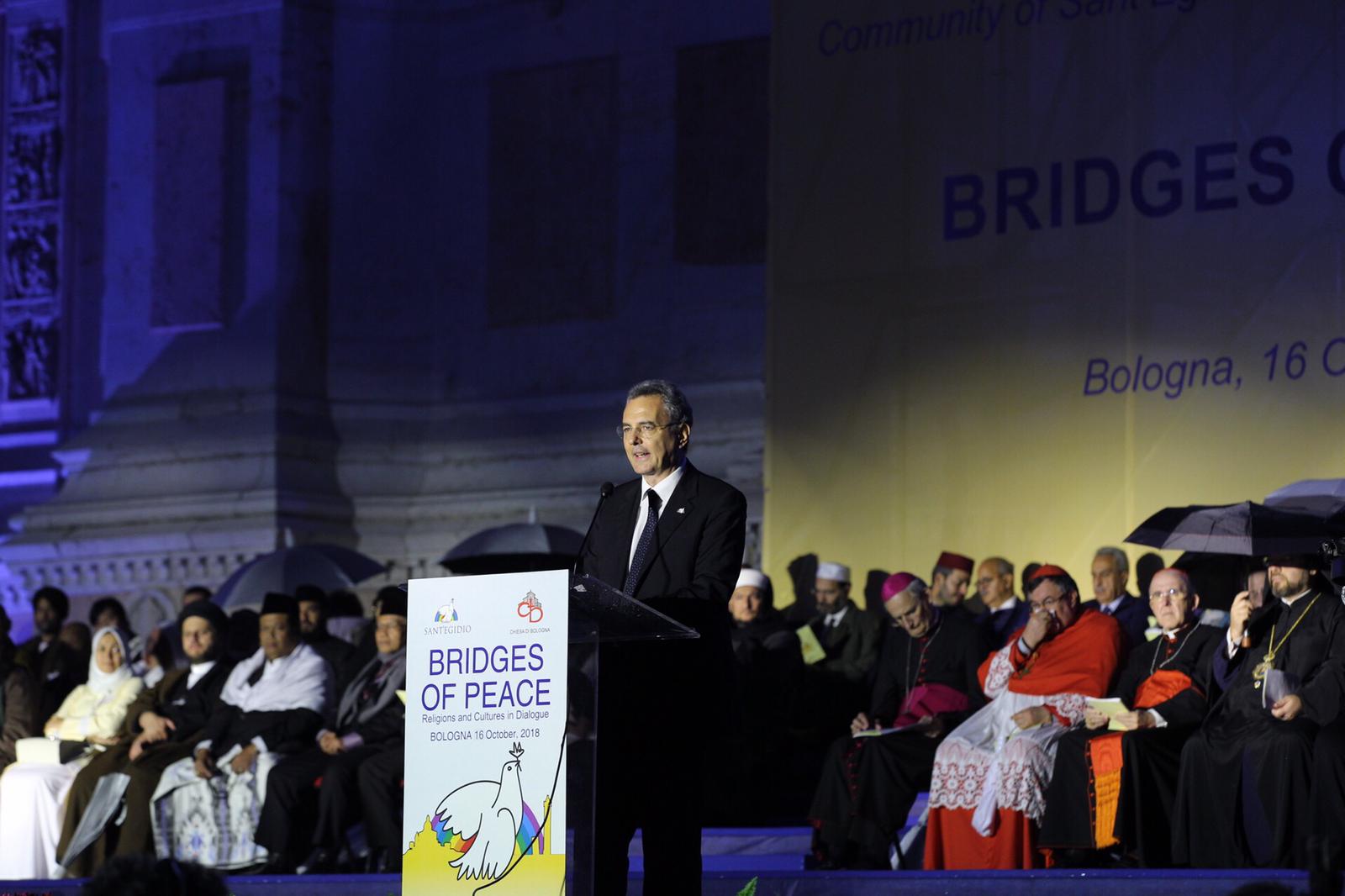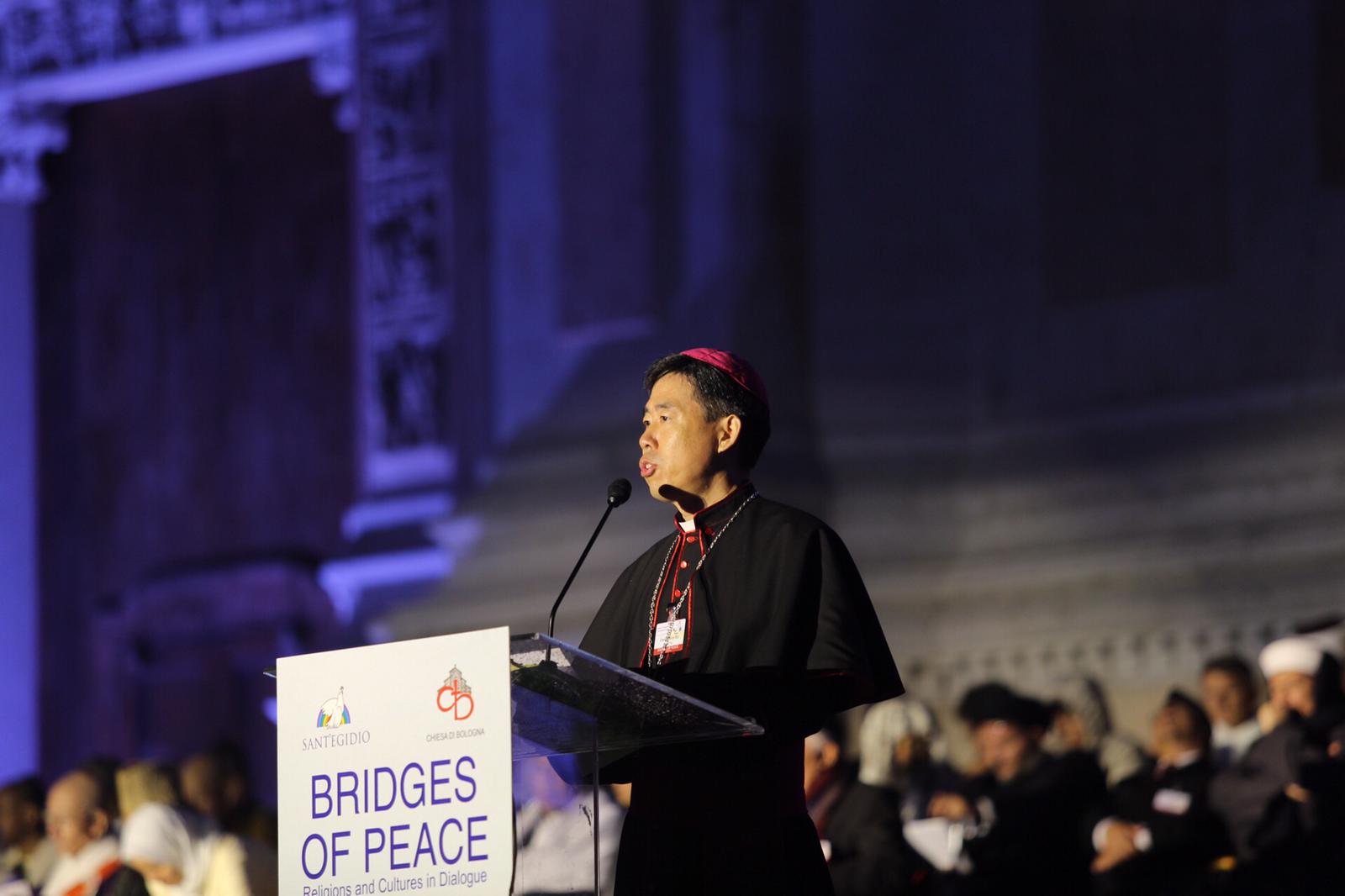Dear ladies and gentlemen, esteemed eminencies, dear guests,
It is my great honour to address you on behalf of the City of Sarajevo. One can never say enough about the experiences of Sarajevo, and yet everything one says carries a specific weight.
Introduction
The world we are living in is going through a turbulent period and constant changes. Unfortunately, those changes are not always for the better.
The values of humanism, unity, understanding, respect, human rights, diversity and the global framework, built and fought for by generations– are endangered in many parts of the world today.
The ideas based on divisions, radicalisation, discrimination, segregation, drawing of borders, fences and conflict, have not unfortunately been eradicated – despite decades-long efforts. On the contrary.
The world is still not a better place to live. There are few reasons to be content when it comes to the progress made. The challenges are constantly growing. Old conflicts are becoming worse, and new conflicts have flared up. Compared with the past three decades, today there are more countries engulfed in crisis which are increasingly more violent and detrimental for development and which result in even greater divisions. Modern crisis and conflicts are rarely limited to places where they originally arose. They affect whole regions and more often than not extend to the international arena.
A record number of civilians are victims of strikes, and a great number of them are exposed to persecution, discrimination, marginalisation and grave violations of basic human rights, while many other are victims of natural disasters.
Peace, security and prosperity remain just a distant hope for many human beings across the globe.
EUROPE, BOSNIA AND HERZEGOVINA AND THE RICH EXPERIENCE OF SARAJEVO
Europe is also facing complex internal and external challenges. Liberalism is in crisis, and modern Western democracies are burdened by the effects of growing populism. Extremist political parties have found fertile ground in Europe which is frantically looking for solutions to the new challenges brought on by globalisation, such as migrations, and the rise of antisemitism, islamophobia and xenophobia.
Joint and concerted action by religious authorities, religious communities, state institutions, the academic community and civil society, will be indispensable in facing these challenges.
Western Balkans, as the wider region, and Bosnia and Herzegovina, as a country, are investing great efforts to reach the standards of progressive parts of the world, make progress in the process of EU integration despite the many challenges it faces as part of Europe and the world, and as a crossroads of cultures, religions, identities and civilisations.
Sarajevo, the capital city of Bosnia and Herzegovina and a city with significance that transcends that of an administrative capital, has a rich historical experience that can contribute to better understanding of the past, the present and better planning for the future.
Since its foundation it has been, and still is today the European city with unique multi-ethnic, multicultural and multi-religious spirit in terms of its significance, position, values and character. The capital city of Bosnia and Herzegovina actually has in its essence precisely those qualities that the European Union and other parts of the developed world are building, developing or defending.
Sarajevo developed as an environment in which coexistence of several ethnicities, religions and cultures was possible and welcome and where extremism of no kind was ever present. Sarajevo had always integrated different ethnic groups, religions and cultures. Many of those groups faced with persecution, such as the Jews, had found refuge and long awaited freedom in our society and became an integral and inseparable part of Sarajevo and Bosnia and Herzegovina.
Diversity and not assimilation had been and still remains a trademark of Sarajevo for the past five and a half centuries.
It is true that our past was turbulent and marked by frequent foreign invasions and occupations. Sarajevo was a place where, during its long and fascinating history, the eastern and western civilisations met and clashed occasionally, but nonetheless always enriched, completed and strengthened one another.
For the past six decades of the XX century, the city went through two devastating wars (the Second World War and the 1992-1995 aggression). Both of those wars brought mass killings and caused immeasurable damage. The goal of both had been the destruction of the essence of historical diversity of the city and its cosmopolitan spirit.
However, neither one had managed to achieve its exclusivist and anti-civilisational vision, thanks to the enormous resistance showed by Sarajevans, in their determination to preserve their centuries-old values.
Wars have never deterred Sarajevans from the reconstruction and recovery of the principle of living together after conflicts. Despite the losses suffered by the city in the past century due to conflict, and the longest siege in the history of modern warfare, Sarajevans showed their readiness and desire to reconstruct the principle of living together in the city and preserve its diverse heritage.
Sarajevo has already achieved recognition as a global place of cultural exchange between the east and west, i.e. as a bridge between the east and west. Sarajevo has historically gained that privilege due to its tolerance towards all religions, its openness to all peoples and its democratic views.
With its churches, mosques and sinagogues, Sarajevo is the heart of multi-ethnic, multi-cultural and multi-religious Bosnia and Herzegovina. Its brave battle for preservation of integral Bosnian values, which are identical to fundamental civilizational values, can serve as a model for Europe and the world.
In view of that fact, Sarajevo is not just a geographical or political, but primarily a civilizational and cultural notion.
Sarajevo is not just a city but a living paradigm of universal values. Its significance is immeasurable in a world that is beginning to tear those values down and build walls and barbed wire.
VISION FOR THE FUTURE
After a century marked by wars, we would like for Sarajevo to become a global centre of peace, open dialogue between cultures and civilisations and peaceful resolution of conflicts. Due to its specific character, the City of Sarajevo has a historical responsibility and obligation to become a cradle of world peace and we will actively work towards that goal.
It was precisely this city administration and I as the Mayor who have paid special attention to creating conditions for activities of the national cultural societies and religious communities of the Bosniak, Croat, Serb, Jewish and other peoples who live in our city.
After taking office as Mayor, I paid a visit to the heads of all religious communities in Sarajevo. I forged a close and successful cooperation with them which I intend to strengthen even further.
The respect for our traditional, religious and ethnic tenets is not contrary to the civic concepts, the protection of the rights of the individual, and it cannot go against global modern currents and trends.
Local government and religious authorities can jointly do a great deal in the promotion of values which will form a basis for a brighter future. We are not inventing anything new here, but merely stating a fact that was known and practiced by previous generations.
The future is not a lottery. What happens in the future depends on how we start building it today.
Sarajevo is going through rapid economic and infrastructural development.
It is becoming a modern, open, European city, a leader in the implementation of reforms, introduction of European standards and successful implementation of European and other development projects, and good coordination between different levels of local government, efficiency and functionality, to the benefit of its citizens.
According to our vision by 2020 some of the most important processes within the competence and in accordance to the abilities of the city administration will be initiated with the aim of achieving a part of the enormous potential of the capital city of Bosnia and Herzegovina.
The launching of the trends leading to greater efficiency, active engagement, coordination, and use of resources and potentials of the capital city of Sarajevo will pave the way for the development of all segments of Bosnian and Herzegovinian society and state, and contribute to the overall positive change leading to economic progress and raising of the living standards of Bosnian and Herzegovinian citizens, respect of human rights, coexistence, development of trust and reconciliation.
There is no doubt that the laying of foundations for development of potentials of Sarajevo will be one of the most important processes that will contribute to the overall progress of the state and ultimately, an important step towards the EU membership.
We see this as a chance to add an additional modern European progressive character to the existing historical, symbolic significance of Sarajevo that would make our city a comfortable place for living for all people.
We want a city in which better future would become reality.
I am truly pleased to be here with you today when we are sending a message of peace which is for us intertwined with compassion and stability. I am glad that I can be a part of the love and hope that we all share.
